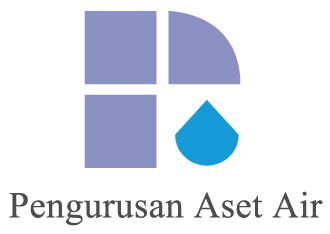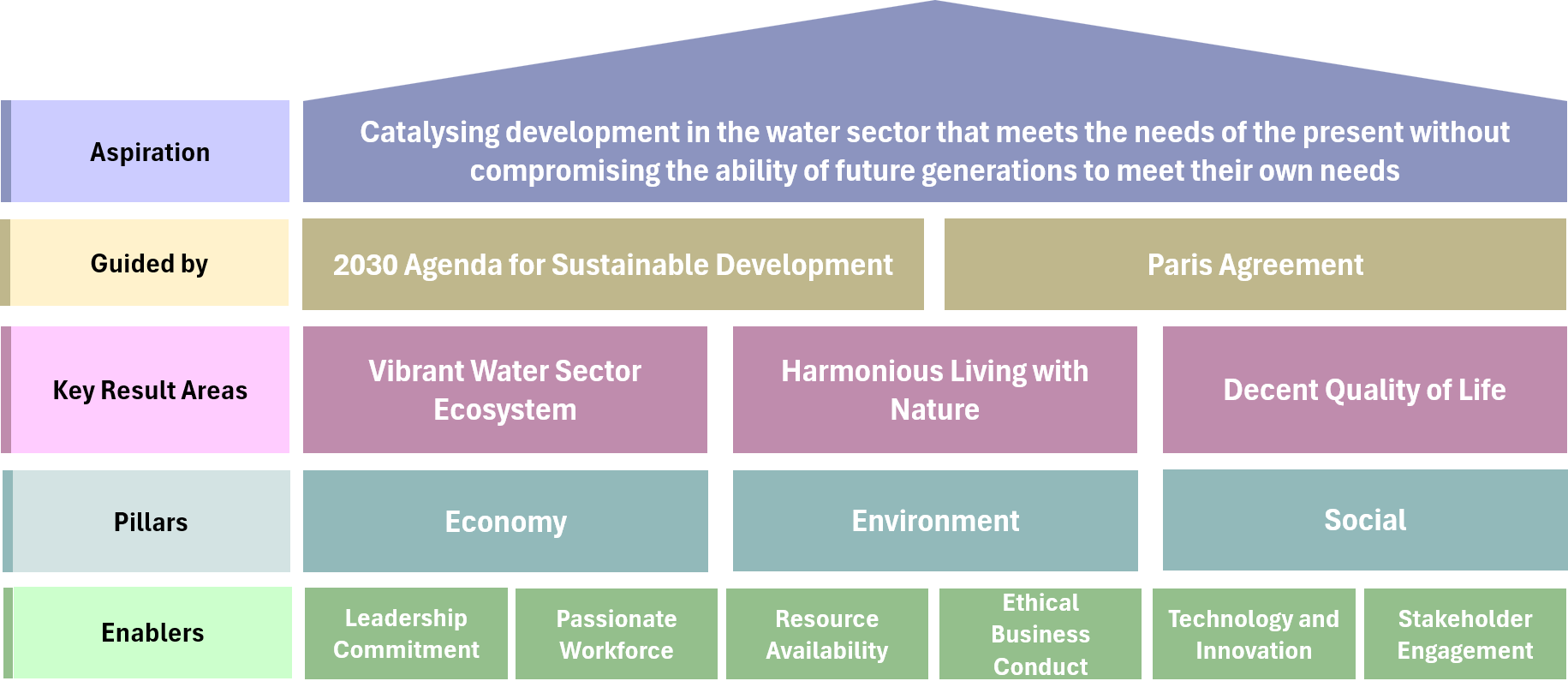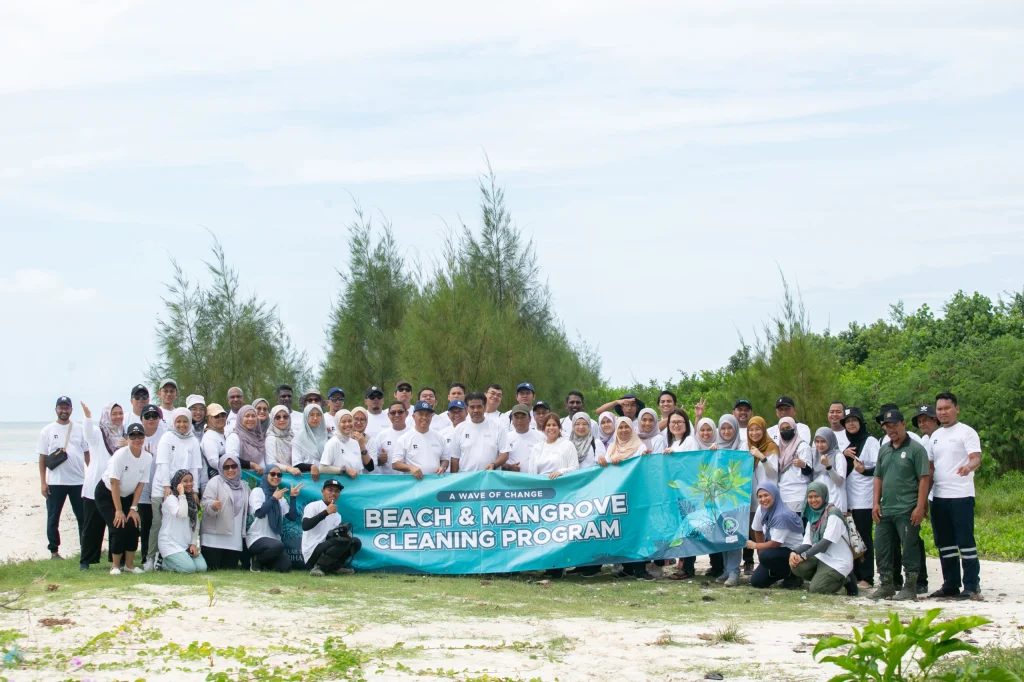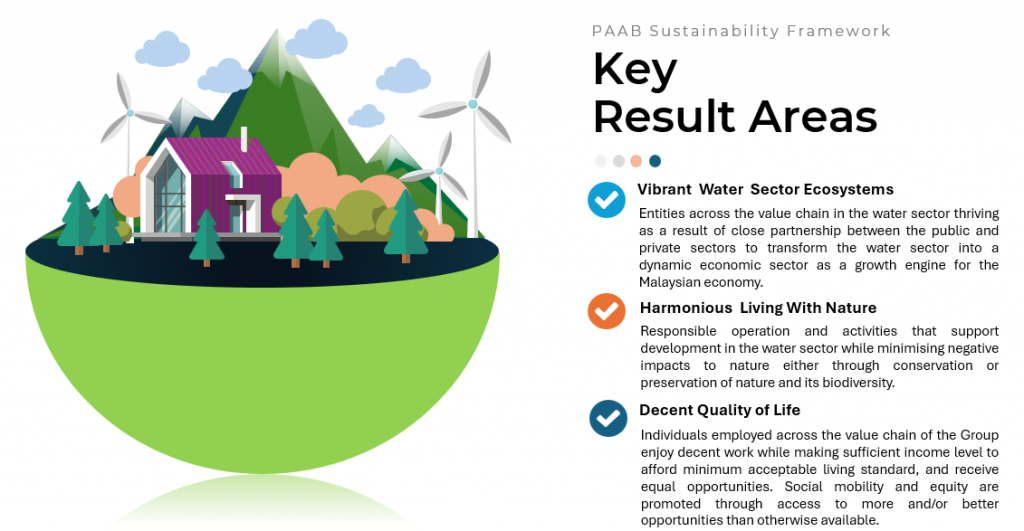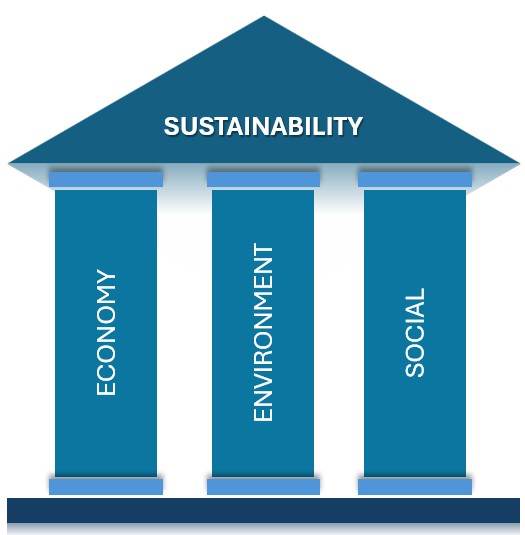Overview
As a special purpose entity and as a Government-Linked Company whose one of its objectives is to bridge the gap between the public and private sectors, PAAB’s interests and values primarily circle around balancing social obligation to fund, develop, and deliver high quality water infrastructure as well as fiduciary duties to the investors of PAAB and its subsidiaries (“PAAB Group” or “the Group”).
The Group’s moral compass to be a responsible organisation guides the Group towards conscious effort in supporting the aspiration by the Federal Government to materialise the international agenda for development that meets the needs of the present without compromising the ability of future generations to meet their own needs (“sustainable development” or “sustainability”).
PAAB has a dedicated Sustainability Steering Committee to steer, coordinate, track, and evaluate progress of implementation of the Group’s sustainability strategy. This committee comprises various functions in the Company and is chaired by the Head of Strategy and Transformation Office. The Sustainability Steering Committee reports to the Chief Executive Officer.
Sustainability Committee, a committee comprising members of the Board of Directors of PAAB (“the Board”), supports the Board in providing oversight in sustainability agenda for the Group in respect of planning, implementation, evaluation, communication, as well as disclosure of policy, framework, strategy, targets, and practices towards the goals of the 2030 Agenda for Sustainable Development (“Sustainable Development Goals” or “SDG”) and climate-related goals as set forth by the United Nations. The Sustainability Committee convenes its meeting on a quarterly basis.
The Board is the highest approving authority and is ultimately responsible in setting the direction and providing oversight for the Group in relation to sustainability.
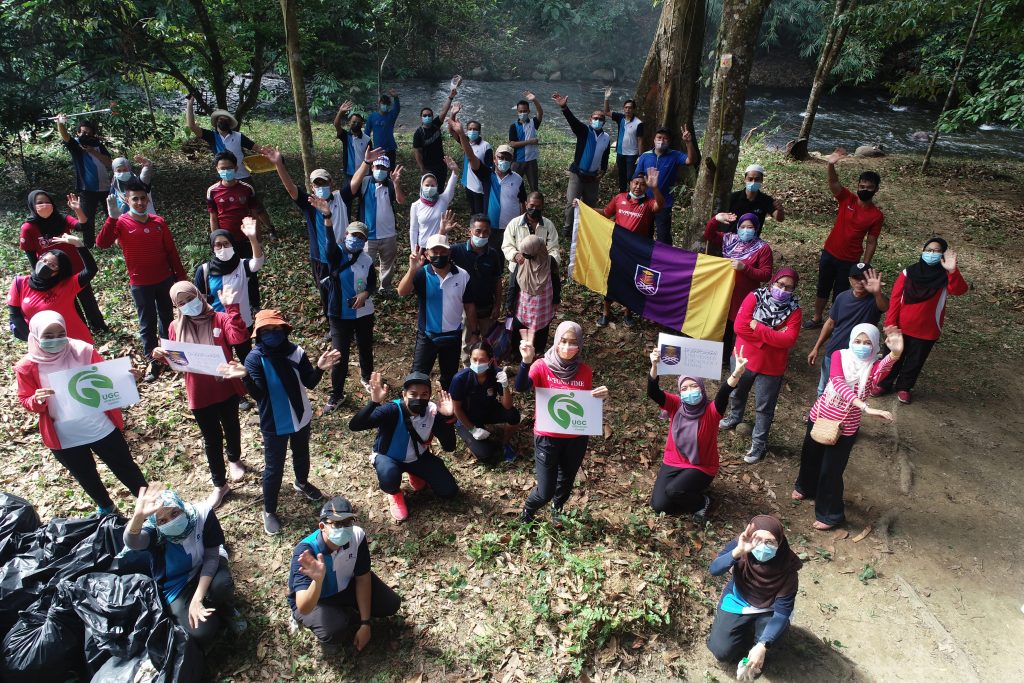
Sustainability is a collective responsibility of everyone in PAAB Group. The Sustainability Steering Committee comprises all functions within the Group, i.e., operations, finance, and corporate, with representation from the management office to facilitate discharging of the committee’s roles and responsibilities per the terms of reference for the committee.
For example, the risk management function ensures all risks associated with sustainable development and climate change are identified and managed; the tender function works with contractors and suppliers to embed sustainability in the supply chain; whereas the treasury function ensures availability of funding to finance development of infrastructure for the national water services industry. The sustainability officer is responsible for internal coordination of everything related to sustainability. The Sustainability Steering Committee is the frontline body in development and execution of the Group’s overall sustainability strategy as well as monitoring progress of the strategy.
At the strategic level, a medium-term sustainability plan is developed following engagement with internal and external stakeholders. This engagement aims to understand the impacts of PAAB Group’s operation and activities, expectations of the stakeholders, the economic, environmental, and social risks and opportunities, and how the Group can contribute towards sustainable development and the national climate aspiration based on the context of the internal and external environment within which the Group operates. The medium-term sustainability plan outlines specific medium term objectives which are measured by sustainability performance indicators, with initiatives planned to be undertaken towards meeting the objectives.
At the tactical and operational level, the strategy outlined in the medium-term sustainability plan is translated into short-term targets which are included in the annual performance planning of the relevant business functions, either corporate, divisions, departments as well as the employees.
Monitoring of implementation of the sustainability strategy is carried out by the Sustainability Steering Committee and subsequently reported to the Chief Executive Officer.
The Group has tailored its management approach to sustainability to suit the context and mandate of the Group in the national water services industry. The Board believes this approach to be the best fit for the Group now, and is expected to continue to be so in the foreseeable future.
